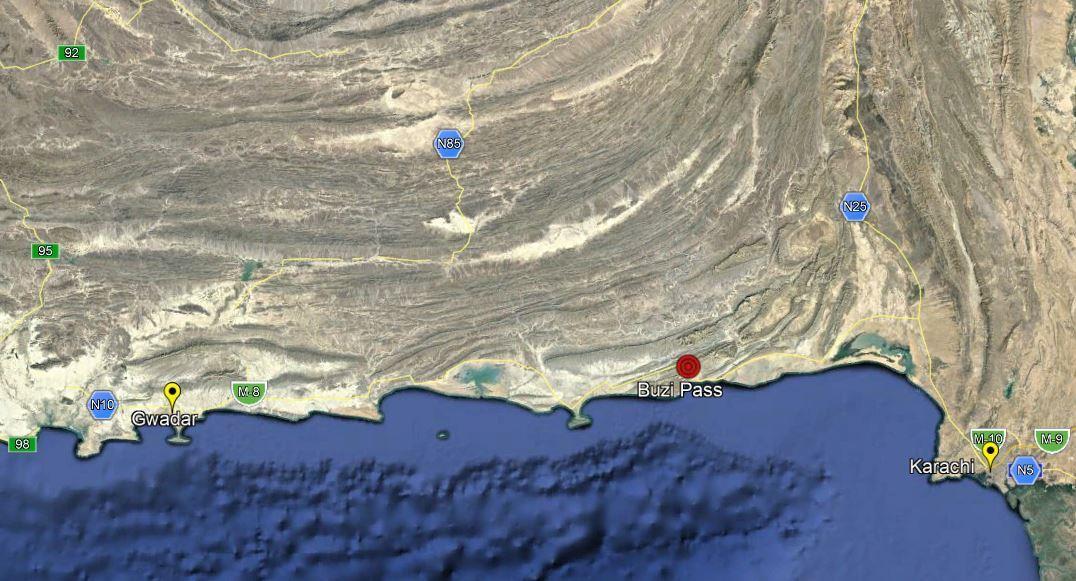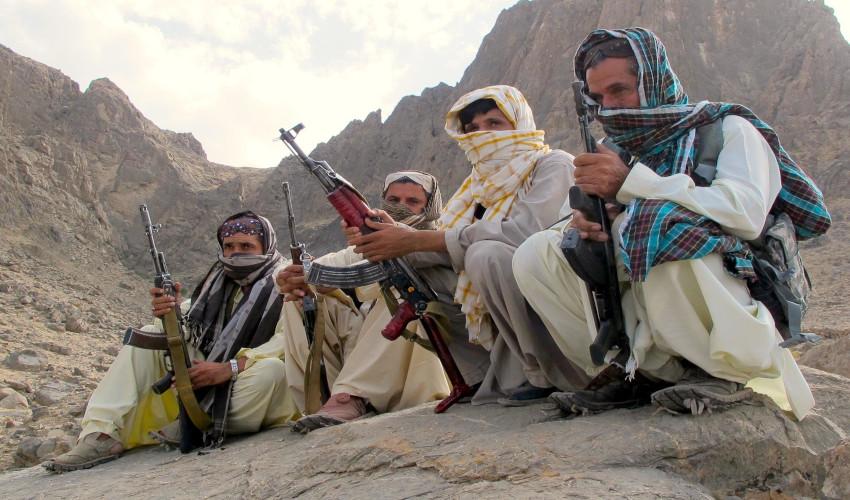Baloch Separatist Alliance: A Revived Threat to CPEC?

Location of perpetrated attack on April 18 along Makran Coastal Highway
Current Situation
A targeted attack took place on 14 bus passengers travelling from Karachi to Gwadar in the south of Pakistan’s Balochistan province during the early morning hours of April 18. The attack took place at the Buzi Pass location along the Makran Coastal Highway Stretch which connects the two aforementioned major cities in the province. Reports indicate that assailants, associated with the Baloch Raaji Aajoi Sangar (BRAS), an umbrella Balochi separatist group disguised as members of the Pakistani paramilitary forces conducted a check of the passengers’ National Identity Cards and escorted 16 individuals outside the vehicle. Reports indicate that two of the 16 individuals reportedly escaped whereas the remaining 14 were shot dead by gunmen. Sources indicate that most of the victims were Pakistani Navy and Coast Guard personnel. The organisation also threatened an escalation and intensification of attacks against Pakistani security forces in the future.

Official claim by BRAS claiming the latest attack at Buzi Pass
The April 18 attack follows a similar attack by this separatist group which it claimed on Pakistani military personnel on February 17. BRAS fighters reportedly attacked a Pakistani patrol near the Goran Baalgatar Pass along the route connecting Panjgur and Turbat in Balochistan province. The aforementioned route connects to the Gwadar port, currently being developed with Chinese investment in the Balochistan province and is also considered critical in terms of the China Pakistan Economic Corridor (CPEC).
Similarly, a convoy of 22 vehicles carrying Chinese engineers was targeted by the Baloch Liberation Army on April 1 in the vicinity of Hamdard University in Karachi. The attacks have been claimed alongside displeasure of Baloch separatist groups with involvement of Chinese entities in the infrastructural development in the province.
During preceding months, the BRAS has claimed multiple attacks against Pakistani military forces in the southern part of the Balochistan province. The group is an alliance between the Baloch Liberation Army, Baloch Liberation Front and Baloch Republic Guards, all three militant separatist groups active in the Balochistan province and was reportedly formed in December 2018.
Assessments
While forming an umbrella organization typically helps pool the relevant groups’ resources as well as help better strategise, especially when operating in a limited space against a common target (in this case the Pakistani government & Chinese nationals). This remains a likely factor behind the decision to join forces with other Balochi separatist groups as announced in December 2018. However, separate claims of attacks intermittently over and above the joint operations highlights the highly
Baloch Separatist Alliance: A Revived Threat to CPEC?
Decentralized nature of operational capabilities established by these separatist groups in the region. Moreover, the sustained momentum of attacks, either individually or in a group, as recorded in the region in recent months is indicative of the limited effectiveness of the prolonged security operations launched by Pakistani security forces over the preceding decades.
Furthermore, operations of militant nationalist organisations such as the Baloch Liberation Army (BLA) continue to pose a threat to foreign operations in the region, particularly Chinese. This assessment is made keeping in mind knowledge of oil deposits in addition to those of gold, uranium and copper which the indigenous population is likely to attempt to hold control over. Similarly, ongoing coal mining operations in the Chamalang, Duki, Harnai and Quetta regions, facilitated by the involvement of Chinese entities in collaboration with the Pakistan Minerals Development Corporation is likely to contribute to the extension of hostile operations. This assessment is made against the backdrop of past attacks by Baloch separatists on mine premises recorded in the preceding months. As a result, operations by Baloch separatists are expected to continue against foreign entities especially those perceived to have aligned with the Pakistani government and exploiting the region’s resources without due compensation.
At the time of writing, significant infrastructure projects remain in the pre-development or ongoing phases in the Balochistan province including the construction of the New Gwadar International Airport, Gwadar East Bay Expressway and the Quetta Water Supply Scheme in addition to possibilities of development of petrochemical and stainless-steel industries in the Gwadar area. This points towards extended presence of Chinese entities in the region until the completion of the aforementioned projects and consequently continued hostility from Baloch separatists in the region until an amicable solution is arrived at between the aforementioned groups.


Odessaforum.biz.ua
1 year ago